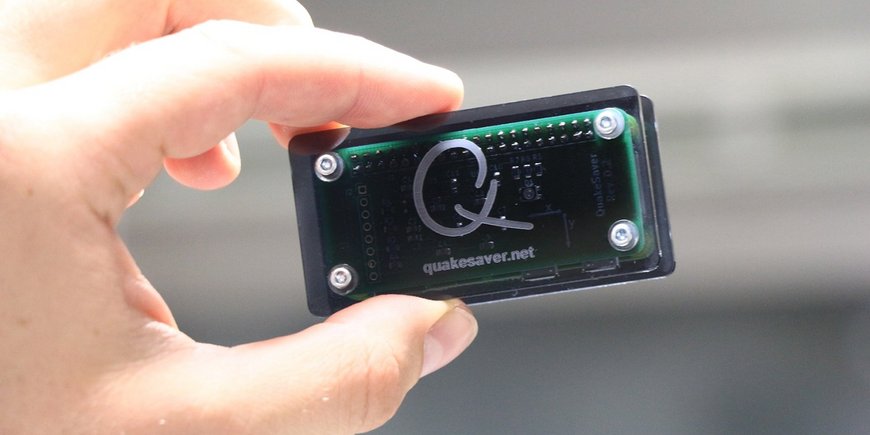The Helmholtz Centres such as the German Research Centre for Geosciences (GFZ) support their employees in translating their findings into new products or services. They provide a founder-friendly framework, advisory services and support for funding programmes. In 2018, three young companies set out to bring the ideas they had developed at the GFZ to market. "Three spin-offs in one year is a pleasingly high number, also in comparison with the other Helmholtz Centres," says Jörn Krupa, head of GFZ’s Technology Transfer Department since September 2018. "All three spin-offs in 2018 - DynaFrax, GeoBM and QuakeSaver - develop services and products based on software," says Krupa. " This trend towards the development of digital offerings characterises the majority of spin-offs at GFZ in recent years," adds Martin Otto, who is responsible for spin-offs in the GFZ Technology Transfer team. Between 2004 and 2017, a total of eight companies was spun off with the help of GFZ Technology Transfer. The three new companies are all based in Potsdam.
DynaFrax UG, founded by Jeoung Seok Yoon, Arno Zang, and Hannes Hofmann from GFZ sections Seismic Hazard and Risk Dynamics, and Geothermal Energy Systems, respectively, had been funded last year by “Helmholtz Enterprise”, the internal program for spin-offs from the Helmholtz Association. DynaFrax stands for "Dynamic Fracture Experts" and offers software for seismic hazard analysis based on 3D computer simulations of the subsurface. Possible applications are deep geothermal energy, shale gas extraction, waste water disposal, and geological storage of radioactive waste, for which precise knowledge of complex crack networks and underground faults is important.
GeoBM UG by Zhiguo Deng and Harald Schuh from the Space Geodetic Techniques section offers a platform for processing GNSS data with millimetre accuracy. GNSS stands for "Global Navigation Satellite Systems". The company is enhancing the section's EPOS (Earth Parameter and Orbit System) software to provide customers with real-time positions and clock corrections of GNSS satellites. These are necessary to calibrate the satellite systems correctly. Without these data, the satellites cannot achieve the high positioning accuracy required for further applications.
QuakeSaver GmbH, established by Danijel Schorlemmer, Marius Isken and Marius Kriegerowski from GFZ sections Seismic Hazard and Risk Dynamics, and Physics of Earthquakes and Volcanoes, respectively, develops hardware and software that can be used in sensor networks for the earthquake safety of people and buildings. Target groups are building owners, private households, local authorities, and insurances.
Further information:
- GFZ Technology transfer - innovation, business collaboration, and transfer activities www.gfz-potsdam.de/en/centre/technology-transfer/
- Helmholtz Association Transfer Instruments www.helmholtz.de/en/transfer/technology_transfer/innovation_and_funding_programms/
Image: QuakeSaver develops and distributes networks of microelectromechanical sensors for earthquake safety. (Photo: QuakeSaver GmbH)
https://media.gfz-potsdam.de/gfz/wv/pm/19/10845-thumb_qshand_-c-QuakeSaver%20GmbH.jpg
Contact:
Dr.-Ing. Jörn Krupa
Head of Technology Transfer
GFZ German Research Centre for Geosciences
Telegrafenberg
14473 Potsdam
Phone: +49 331 288-1098
e-mail: joern.krupa@gfz-potsdam.de
Media contact:
Dipl.-Phys. Philipp Hummel
Public & Media Relations Officer
GFZ German Research Centre for Geosciences
Telegrafenberg
14473 Potsdam
Phone: +49 331 288-1049
e-mail: philipp.hummel@gfz-potsdam.de
Twitter: @GFZ_Potsdam
twitter.com/GFZ_Potsdam








![[Translate to English:] Torsten Sachs in front of a climate station on a field](/fileadmin/_processed_/3/9/csm__TorstenSachs_bearbeitet_GS_4a1365ef84.jpeg)

![[Translate to English:] left image flood at the Ahrtal: image from above, several houses are flooded; left image:: Heidi Kreibich;](/fileadmin/_processed_/4/4/csm_Bild2_9af0130e9f.png)



![[Translate to English:] Start der Vega Rakete](/fileadmin/_processed_/6/4/csm_20231201-kachel_Vega-VV23-launch_ESA-CNES-Arianespace_706716b68c.jpeg)









![[Translate to English:] Poster exhibition at the Brandenburg Hydrogen Day at the GFZ, some participants in the foreground](/fileadmin/_processed_/6/5/csm_Erster_Brandenburgischer_Wasserstofftag_GFZ_402fcec95e.jpeg)
![[Translate to English:] Group picture of the participants](/fileadmin/_processed_/9/4/csm_20231108_CAWa-Workshop-Tashkent_Gruppenbild_99ea779d8a.jpeg)

![[Translate to English:] [Translate to English:] Hörsaal](/fileadmin/_processed_/e/6/csm_H%C3%B6rsal_e21ac645fb.jpeg)


![[Translate to English:] The Delegations in the Historic Library on the Telegrafenberg. In the back there are from left to right, the Dutch Ambassador for Germany, Ronald van Roeden, the Dutch Minister for Education, Culture and Science, Robbert Dijkgraaf and the scientific director of the GFZ, Susanne Buiter.](/fileadmin/_processed_/d/b/csm_Kachel-2_9eba4b4212.jpeg)

